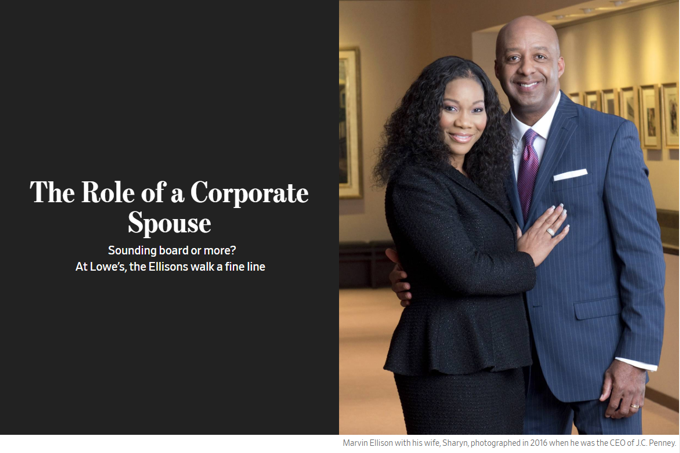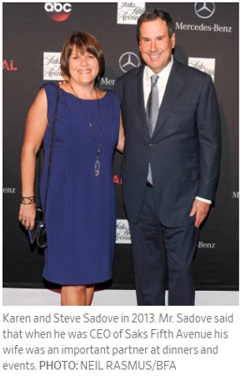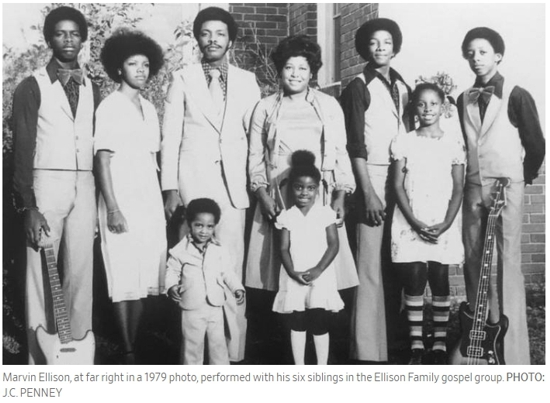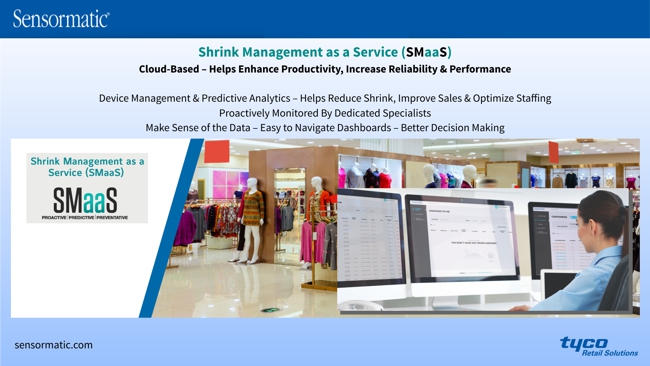|
 |
 
The Role of a Corporate Spouse
Marvin & Sharyn Ellison - CEO Lowe's
Sounding board or more? At Lowe’s, the Ellisons walk a
fine line
Starting His Career in Retail LP This Exec. Reached the Pinnacle
By Sarah Nassauer and Suzanne Kapner
Dec. 1, 2018 12:00 a.m. ET
Soon after Marvin Ellison took over as chief executive of Lowe’s Cos., his
wife, Sharyn, peppered him with questions on why the home-improvement retailer
didn’t carry certain types of tiles or doors that she wanted for their new
Charlotte, N.C., home.
It’s a familiar pattern for the couple, who have been married for 26 years and
have worked closely together as Mr. Ellison has risen to the top of corporate
America.
At J.C. Penney Co. , where he served as CEO until he left in May to join Lowe’s,
Mrs. Ellison gave him her opinion on store layouts and provided a sounding board
for ideas. She was the guest of honor at an employee event and redecorated the
CEO’s office, leading some staffers to call her the “First Lady.”
In recent interviews, Mr. Ellison, 53 years old, said he leans on his wife’s
judgment, adding that his career “really is both our careers.” “There is no one
that I count on more for candid, blunt advice and opinions,” he said.
The Ellisons are walking a fine line. On the one hand there is a desire for CEOs
to display a softer side, and for society at large to acknowledge the
behind-the-scenes role of spouses in the success of business leaders. But
problems can arise when executives fail to maintain clear boundaries between
their personal and professional lives or appear to prioritize the advice of
family members over professional managers.
At Penney, Sharyn Ellison’s involvement rankled some employees, who spoke among
themselves about how they felt Mr. Ellison placed her opinions ahead of their
professional expertise, according to some of these people, who have since left
the company. A Penney spokeswoman declined to comment.
“I come in as a shopper” not an employee, Mrs. Ellison, 50, said in an
interview. She said her interest is born of the couple’s close relationship and
joint life goals, which they map out on a cork board at home.
Mr. Ellison was careful to characterize his wife’s support as in line with that
of any spouse. He said he often seeks her input on difficult decisions, but “not
corporate direction as much as my thought process.”
Among some executives around him, the CEO is respected for the emphasis he
places on his family. “I think a lot of leaders talk about work-life balance.
Marvin doesn’t just talk about it, he leads that way,” said Joe McFarland,
executive vice president of stores at Lowe’s, who has also worked with Mr.
Ellison at previous companies.
A spouse—which at least for the overwhelmingly male Fortune 500 CEOs most often
means a wife—can provide invaluable advice and emotional intelligence, said
Jeffrey Cohn, managing partner of DHR International, an executive-search firm.
“Business these days is so much about the soft skills,” he said.
But he said that finding the right balance can be tricky. “You want to avoid
even the perception of unmerited favoritism and certainly a wife could fall into
that category,” he said.
The former CEO of another large retailer says his wife often sat in on meetings
and offered her opinion when she accompanied him on business trips, even though
some of his staff resented her involvement. When employees pushed back, he made
clear that decisions rested with him, but added: “When you hire me, you get both
of us.”
The comment echoes perhaps the most famous “two-for-the-price-of-one” example,
when early in his presidency, Bill Clinton unleashed a public backlash by
putting then first lady Hillary Clinton in charge of a healthcare-reform effort
that eventually failed.
Some CEOs draw a clear line for a spouse’s involvement.
 Former
Saks Fifth Avenue CEO Steve Sadove says his wife Karin was an important partner
from a social perspective; she forged relationships with designers and customers
and was an ally during the dinners, parties and events necessitated by his job.
But she never sat in on business meetings or suggested clothes the retailer
should carry. Former
Saks Fifth Avenue CEO Steve Sadove says his wife Karin was an important partner
from a social perspective; she forged relationships with designers and customers
and was an ally during the dinners, parties and events necessitated by his job.
But she never sat in on business meetings or suggested clothes the retailer
should carry.
“You operate as a team, but not in terms of business decisions,” said Mr. Sadove,
who left Saks in 2013, and was speaking from his personal experience and not
weighing in on the approach of other CEOs.
The Ellisons met in 1986 as students at what is now the University of Memphis.
Their similar backgrounds drew them together. Both grew up in the South, part of
African-American families steeped in church and gospel music. Mrs. Ellison’s
mother was a pastor and her father was a manager at the local utility company
who sang gospel.
Mr. Ellison’s parents were sharecroppers in Brownsville, Tenn. “It was 1971
before we had indoor plumbing,” he said. His father later owned a small
insurance company. Mr. Ellison played bass guitar alongside his six siblings in
the Ellison Family gospel group. They recorded four albums and performed in
churches and other venues across the country.

Mr. Ellison’s father, who never graduated from high school, was adamant that his
children get an education. Mr. Ellison earned an undergraduate degree in
business marketing from the University of Memphis and an M.B.A. from Emory
University.
Soon after the couple married, they moved from Memphis to Jacksonville, Fla.,
where Mr. Ellison worked at Target Corp. as an asset-protection manager, helping
to reduce shoplifting and product damage. Each month, they made the long drive
back to see family. “It was some of the best time of our lives,” Mrs. Ellison
said. “We would ride for 10 hours without ever turning the radio on. We would
just talk.”
As her husband climbed the corporate ladder, Mrs. Ellison, who studied business
administration and finance, worked as an insurance underwriter and an investment
manager. In 2001, she started her own interior-design company. Later, most of
her time was spent raising their children, a son who is now college age and a
teenage daughter.
Early in their marriage, the couple decided to focus on Mr. Ellison’s career,
they said. One priority was for him to become a CEO.
“I wanted to do everything we could do to support him,” Mrs. Ellison said.
Mrs. Ellison said she often complained to her husband while he was head of store
operations at Home Depot that employees rushed past her when she was shopping
instead of offering to help. During a beach vacation in Mexico, they debated
ways to focus store workers on shoppers.
That conversation, she said, is part of what led to a Home Depot policy called
“the Power Hour,” a set period each day when workers have to help customers
instead of doing administrative tasks.
Mr. Ellison said conversations with his wife didn’t lead directly to any changes
in company strategy and that Home Depot executives came up with the Power Hour
idea. The couple have a strong relationship, he said, and “any spouse that has a
husband or wife that works in the service industry provides feedback.” A Home
Depot spokesman declined to comment.
When Mr. Ellison became CEO of Penney in 2015, the retailer was reeling from the
rocky tenure of former Apple Inc. executive Ron Johnson, who turned off shoppers
by scaling back promotions and popular private brands.
“God has chosen my Husband, ‘Mr. Fix It’ and Equipped him for the task to
preserve the company’s 113 year old rich history and Secure the Future,” she
wrote to their neighbors shortly after moving to North Dallas in an email that
was reviewed by The Wall Street Journal.
While Mr. Ellison cast around for ways to counteract online competition and
falling mall traffic—in part by closing hundreds of stores, remodeling beauty
salons and bringing back home appliances—Mrs. Ellison made her own
contributions.
She has an attentive eye when shopping, she said, and suggested Penney could
place more women’s products near baby and children’s clothes to boost sales. She
also wore clothes sold by Penney and said she discussed the fit with her
husband.
What was more unusual was that Mrs. Ellison was the guest speaker at a Penney
luncheon for employees celebrating International Women’s Day. Mr. Ellison said
his wife was invited by employees to speak.
Public appearances of spouses can inspire resentment if they are seen to weigh
in on areas outside their own expertise.
Executives should make sure a spouse “is capable of adding a unique
perspective,” said Mr. Cohn, because “she is going to have a higher bar, even if
qualified,” in the eyes of employees.
Despite Mr. Ellison’s efforts, Penney continued to stumble. It has struggled to
connect with shoppers amid shifting strategies under multiple CEOs. It lost $116
million in the fiscal year ended Feb. 3. Sales fell 0.3% to $12.5 billion for
the year, and have declined in each of the subsequent three quarters.
Mr. Ellison faces the need for a turnaround also at Lowe’s, which is reporting
slower sales gains than rival Home Depot and has struggled with weak customer
service and outdated inventory management. Mr. Ellison recently announced plans
to close some stores and sell Lowe’s Mexico operations to focus investment on
fixing those problems.
And he’ll have help from his wife.
While some executives who have worked with Mr. Ellison have grumbled about her
involvement, Mr. McFarland, the Lowe’s executive who has followed him from
company to company, is looking forward to it.
“Sharyn has been in the store shopping for molding, shopping for new doors,” and
giving feedback, said Mr. McFarland. “She is every bit as present at Lowe’s as I
have seen her at Home Depot, and at J.C. Penney.”
Appeared in the December 1, 2018, print edition as 'A Two-for-One Deal At
Lowe’s.'
Article originally published on
wsj.com |



|









